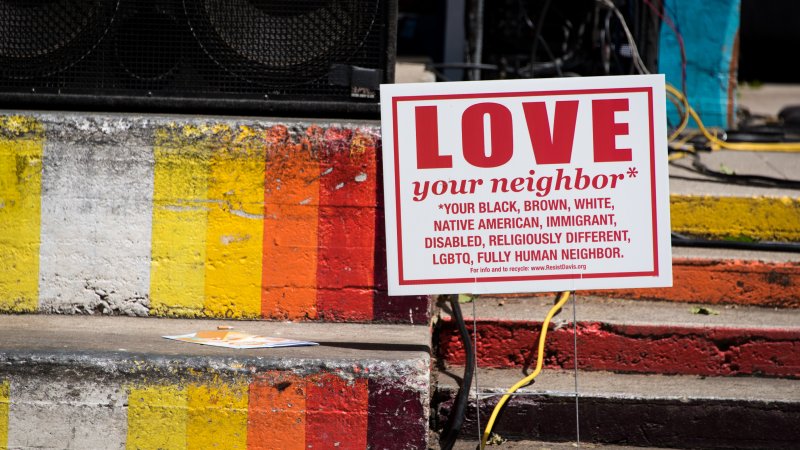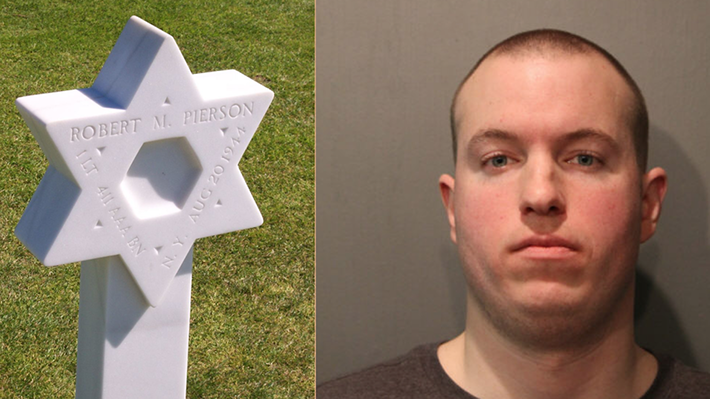
-
HOME
-
WHAT IS STANDOur Mission Our Values Our Help Contact
-
WHAT WE FIGHT FORReligious Freedom Religious Literacy Equality & Human Rights Inclusion & Respect Free Speech Responsible Journalism Corporate Accountability
-
RESOURCESExpert Studies Landmark Decisions White Papers FAQs David Miscavige Religious Freedom Resource Center Freedom of Religion & Human Rights Topic Index Priest-Penitent Privilege Islamophobia
-
HATE MONITORBiased Media Propagandists Hatemongers False Experts Hate Monitor Blog
-
NEWSROOMNews Media Watch Videos Blog
-
TAKE ACTIONCombat Hate & Discrimination Champion Freedom of Religion Demand Accountability
Whitewashing Hate—When Is a Crime Motivated by Bigotry?
Those of the Buddhist faith believe that, after departing the body, the soul takes 100 days to reach the afterlife. The family attend the temple each of those 100 days and kneel before the shrine to Buddha, touching the rug with open palms three times. Close by, decorated by fresh flowers, is a portrait of the departed loved one.
Monthanus Ratanapakdee follows the custom, praying for a safe journey for her father, Vicha Ratanapakdee, a Thai American, who, on January 28 of this year, was brutally beaten and slain not more than a few blocks from his home in the quiet Anza Vista neighborhood of San Francisco, a victim of the increasing tide of violence against Asian Americans.

Monthanus had warned her 84-year-old father to stay indoors and not go out alone, citing incidents of near violence involving her and her young sons; in the span of just a few months, they had been spat on, cursed by passersby and, some months earlier, Monthanus had ducked a punch from a woman outside a hospital. Since the advent of the pandemic, more and more Asian Americans have found themselves targets by those who have harkened to the loudly voiced prejudices of individuals with broad platforms.
Vicha’s murder was recorded on video surveillance cameras around the neighborhood. His assailant simply walked up, assaulted him, beat him to death and then walked away—no evidence of intent to steal, just simply hate.
Since the advent of the pandemic, more and more Asian Americans have found themselves targets.
If Vicha’s assailant is convicted of murder, he could face 25 years to life in state prison. If the crime is deemed a hate crime, however, though the difference in sentencing would amount to little or nothing, the significance and sense of closure to the survivors would mean the difference between calling out and acknowledging hatred and racism or looking the other way, and denying it.
So far, despite the mountain of evidence, the district attorney’s office has failed to label Vicha’s death as more than a felony homicide—no hate involved.
In June, the Bureau of Justice Statistics reported that federal prosecutors declined to pursue hate-crime charges in about 80 percent of cases from 2005 to 2019, citing “insufficient evidence.”
Avlana Eisenberg, a law professor at Florida State University, found that district attorney’s offices “often avoid adding hate-crime charges even—and perhaps especially—when the crime is particularly horrific.” This is in part because the defendant already faces a long prison sentence, and also because, as one prosecutor put it, “it’s impossible to know what’s in someone’s heart.”
But is it?

The infamous slaughter of six women of Asian American descent earlier this year in Georgia was dismissed by police spokesman Captain Jay Baker as the tragic outcome, not of hate, but rather of “a really bad day” on the part of the suspect. “He was pretty much fed up and kind of at the end of his rope and yesterday was a really bad day for him and this is what he did,” Baker said during a news conference after the suspect’s arrest.
Shortly thereafter, however, Baker’s own social media posts hawking T-shirts sporting the slogan “COVID-19 imported virus from CHY-NA,” complete with the Corona beer logo, outed him as, at the very least, the wrong person to speak objectively about the crime. “Love my shirt,” Baker posted. “Get yours while they last.” Baker was summarily removed from the case. A sheriff’s statement of apology followed, but with no acknowledgment that the murders were in any way motivated by hate.
As one prosecutor put it, “it’s impossible to know what’s in someone’s heart.” But is it?
One month later, a white gunman killed eight people at a FedEx facility in Indianapolis, four of whom were Sikh, prompting calls to examine whether the gunman was motivated by bias. Investigators interviewed some 100 people and combed through computer files which indicated that the gunman had visited white-supremacist websites. In July, however, the FBI concluded the gunman had not acted out of “bias or a desire to advance an ideology,” but suffered from a mental illness and had committed “suicidal murder.” The Sikh Coalition, an advocacy group, published a statement asking the bureau to clarify “how and why” it ruled out bias as a motive: “Though law enforcement has said this investigation is over, for all the families who lost loved ones, the survivors, the Sikh community and anyone else impacted by hate violence, these questions will remain forever.”
For Monthanus Ratanapakdee and her family, Vicha’s 100-day journey to the afterlife began with hate. Is it truly “impossible” to know what is in a person’s heart? Many prosecutors and district attorneys would have us believe the answer is yes. Too many justice officials, with convenience rather than justice on their minds, results in too many family members, their hearts broken, denied the decency of closure. And as the crime and abuse statistics targeting minorities continue to climb in direct proportion to the hateful rhetoric that too often inspires violence, the truth emerges that what is in a person’s heart is revealed through that person’s actions.









